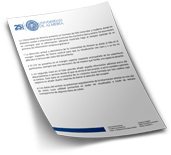Objectives
The Nursing Degree programme is intended to provide future graduates with:
- A wide knowledge of nursing science, as well as social, human and health sciences, and the know-how to respond to the health needs and expectations of the individual, groups, families and communities.
- The skills to apply nursing care procedures and clinical guidelines.
- The ability to build positive relationships with patients.
- The ability to utilise scientific methodology in their interventions.
- The skills to develop a critical and reflective attitude.
Furthermore, the Spanish Ministerial Order setting out the requirements verifying qualifications which entitle the holder to practice Nursing (general care) establishes a range of objectives that are considered supplementary and consistent with the former ones:
- To be able as a nurse to provide patients with professional healthcare using appropriate techniques to cover all their health needs based on
the existing scientific knowledge available and with the quality and safety standards laid down in the applicable legal regulations and deontological codes. - To arrange and provide outcome-based nursing healthcare to individuals, families or groups, while assessing its impact, in accordance with the guidelines for clinical care practices, which describe the processes to diagnose, treat and care for a patient with a given health problem.
- To know and apply the basic, theoretical and methodological principles of nursing.
- To understand a person's interactive behaviour according to their gender, group or community in the multicultural and social context.
- To design nursing care focusing on individuals, families or groups, while making an assessment of its impact and modifying it accordingly.
- To base nursing practice on research evidence and the current methods available.
- To understand patients without preconceptions, taking into account their physical, psychological and social aspects, as autonomous independent individuals, ensuring respect for their opinions, beliefs and values, while guaranteeing the right to privacy through professional confidentiality.
- To promote and respect the rights of patients to be informed, to be independent, and to give informed consent when a decision concerning their nursing care is taken, in accordance with how they cope with their illness and health –process.
- To encourage healthy lifestyles and self-care by supporting preventive and therapeutic behaviour.
- To protect the health and well-being of individuals, families or groups as they are being nursed while guaranteeing their safety.
- To effectively communicate with patients, families or groups, as well as with colleagues, and to promote health education.
- To know the ethical and deontological code for nursing practice in Spain, understanding the ethical commitments of health in the framework of a changing world.
- To know the principles of social and healthcare financing, and to use the available resources properly.
- To establish assessment mechanisms taking into account research, technical and quality aspects.
- To work in a multidisciplinary professional team as the basic unit of operation, which incorporates professionals of the same discipline or different ones as well as those from other care
organizations. - To know the healthcare information systems.
- To provide nursing care in terms of an integrated healthcare service, with multi-professional cooperation, comprehensive processes and healthcare continuity.
- To know the strategies for adopting measures to improve the well-being, and to treat the symptoms, of patients (and their families) when applying palliative care in order to alleviate the plight of those who are severally and terminally ill.
Competencies
Competencies are understood to be “the identifiable and assessable set of interconnected knowledge, attitudes, values, abilities and skills, which will allow the student to exercise his/her professional activity according to the requirements and standards used in the corresponding occupational area”.
All University of Almeria degrees explicitly include three types of competencies:
- The generic competencies included in Royal Decree 1393/2007, of 29 October, which establishes the organization of official higher education.
- The generic competencies of the University of Almeria (approved by the Governing Council on 17 July 2008). These are transversal competencies common to all the degrees.
- The specific competencies of the degree. These competencies are detailed in the degree’s report and are related to its particular subjects. Some of these competencies may have been agreed at the Andalusian regional level, or for certain degrees, they may be regulated at the state level.
Basic, General and Cross-Curricular Competencies
The basic competencies for all bachelor’s degrees are defined in Royal Decree 1393/2007, of 29 October, and are aimed at the student acquiring general training in one or more disciplines, oriented towards preparing them to carry out professional activities.
|
To possess and understand knowledge |
That students have demonstrated they possess and comprehend knowledge in an area of study that is part of the foundation of general secondary education, and is usually found at a level that, although supported in advanced textbooks, also includes some aspects that involve knowledge from the vanguard of the field of study. |
|
Knowledge application (CB2) |
That students should be able to apply their knowledge to their work or vocation in a professional way and possess the skills that are often demonstrated through developing and defending arguments and solving problems within their area of study. |
|
Ability to make judgements (CB3) |
That students have the ability to collect and interpret the relevant data (usually within their area of study) to make judgements, including reflections on relevant social, scientific or ethical issues. |
|
Capacity to communicate and social aptitude (CB4) |
That students are able to convey information, ideas, problems and solutions to both specialized and non-specialized audiences. |
|
Learning skills (CB5) |
That students have developed the learning skills necessary to undertake further studies with a high degree of autonomy. |
The generic competencies of the University of Almeria, approved by the Governing Council on 17 July 2008, are as follows:
|
Basic knowledge of the profession (UAL1) |
Knowledge, skills and attitudes that enable the understanding of new theories, interpretations, methods and techniques within the different disciplinary fields, conducive to the optimal fulfilment of professional requirements. |
| Ability to use ICT (UAL2) | Using Information and Communications Techniques (ICTs) as a tool to express and communicate, to access information sources, as a means of filing data and documents, for presentation tasks, for learning, research and cooperative work. |
| Ability to solve problems (UAL3 | The ability to identify, analyse, and define significant elements that constitute a problem in order to solve it rigorously. |
| Oral and written communication in one's own language (UAL4) | To understand and express ideas, knowledge, problems and solutions clearly and opportunely to a wider, specialized or non-specialized audience (and feelings through words, adapting to the particular situation and audience to gain their understanding and endorsement). |
| The ability to be critical and self-critical (UAL5) |
This is the mental aptitude to question things and be interested in the bases on which ideas, actions and judgements are founded, both one’s own and those of others. |
| Teamwork (UAL6) | To integrate and collaborate actively with other people, areas and organizations to achieve common objectives, in both national and international contexts. |
| Knowledge of a second language (UAL7) | To understand and be understood, both verbally and in writing, using a language other than one's own. |
| Ethical commitment (UAL8) | The ability to think and act on principles of a universal nature that are based on the value of the individual and are directed toward them reaching their full potential. |
| Learning to work autonomously (UAL9) | The ability to design, manage, and execute a task by oneself. |
| Social competence and global citizenship (UAL10) | To respect fundamental rights and equality between men and women, human rights, the values of a peaceful and democratic culture, and environmental and cooperative development principles that promote ethical commitment in a global, intercultural, free and just society. |
Specific competencies
Specific skills for the Nursing Degree course, as established by the Spanish Ministry of Science and Innovation in Order CIN/2134/2008 of 3 July, published in the Official Gazette of the Spanish State BOE No. 174, 19 July 2008, pp. 31680).

Information of interest
- Guide









